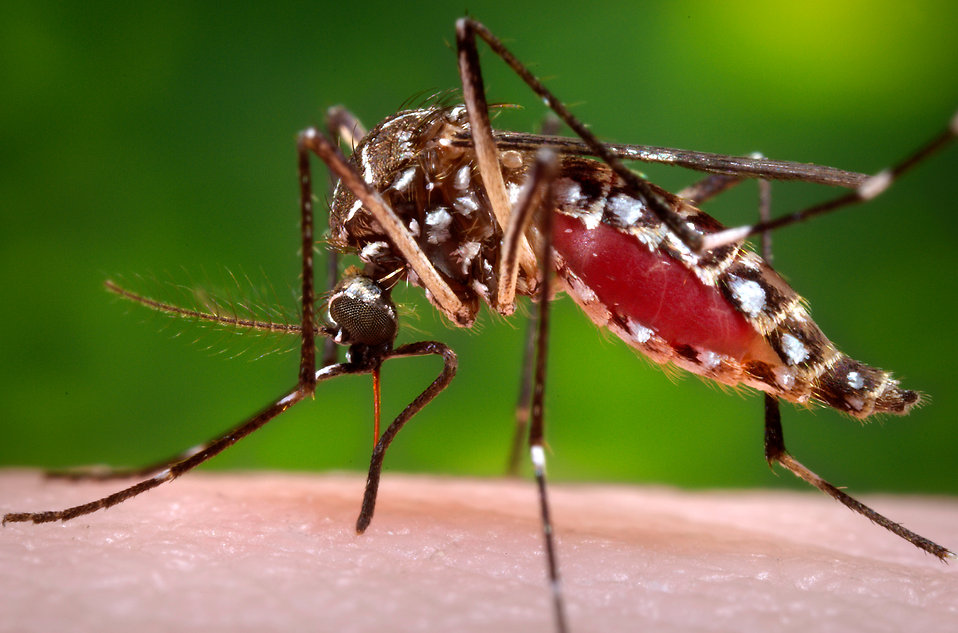Mosquitos are the single deadliest insects in the world, killing millions of people every year through various diseases like dengue, malaria, and most recently, afflicting infants with the devastating effects of the Zika virus. A new insecticide was recently created, which has the effect of killing mosquitos by essentially making them bloat up with blood that they suck.
Jerod Denton, Ph.D., a pharmacologist at Vanderbilt recently published a study detailing how a molecule found in an experimental insecticide inhibits mosquitos from producing urine, Phys.org reports. Together with Peter Piermarini, Ph.D., an entomologist at Ohio State and several others, the study was published in the Scientific Reports journal.
The molecule in question is called the VU041 and it was tested out on the mosquito species Anopheles gambiae and Aedes aegypti. The former is a common carrier of malaria, while the latter is largely responsible for infecting people with the Zika virus. By introducing the molecule into the system of both mosquito species, their ability to produce urine is stopped.
"We're essentially preventing mosquitoes from producing urine after they take a blood meal," Denton explains.
As a result of the inhibition, the mosquitos end up blowing up in size by up to three hundred percent, in some case. This leads to the obvious result of being unable to fly, shortly followed by death.
These findings could not have come at a better time. The Zika virus had already crossed the Rio Grande and has even infected patients in Asian countries. According to The Independent, infected cases in Texas are only to be expected in the future, slowly crawling upwards.
Another reason why insecticides that target other parts of the mosquito in order to kill them are so important is the resistance that the insects are building towards conventional sprays. Most insecticides affect the nervous system of mosquitos, causing them to lose control and unable to fly. Over the years, most species exposed to the chemicals have built up a tolerance, thus rendering such products ineffective.



 Sanofi to Acquire Dynavax in $2.2 Billion Deal to Strengthen Vaccines Portfolio
Sanofi to Acquire Dynavax in $2.2 Billion Deal to Strengthen Vaccines Portfolio  Eli Lilly and Novo Nordisk Battle for India’s Fast-Growing Obesity Drug Market
Eli Lilly and Novo Nordisk Battle for India’s Fast-Growing Obesity Drug Market  Federal Appeals Court Blocks Trump-Era Hospital Drug Rebate Plan
Federal Appeals Court Blocks Trump-Era Hospital Drug Rebate Plan  Novo Nordisk Launches Once-Daily Wegovy Pill in U.S. at Competitive Pricing
Novo Nordisk Launches Once-Daily Wegovy Pill in U.S. at Competitive Pricing  NASA Resumes Cygnus XL Cargo Docking with Space Station After Software Fix
NASA Resumes Cygnus XL Cargo Docking with Space Station After Software Fix  California Jury Awards $40 Million in Johnson & Johnson Talc Cancer Lawsuit
California Jury Awards $40 Million in Johnson & Johnson Talc Cancer Lawsuit  SpaceX’s Starship Completes 11th Test Flight, Paving Way for Moon and Mars Missions
SpaceX’s Starship Completes 11th Test Flight, Paving Way for Moon and Mars Missions  Merck Raises Growth Outlook, Targets $70 Billion Revenue From New Drugs by Mid-2030s
Merck Raises Growth Outlook, Targets $70 Billion Revenue From New Drugs by Mid-2030s  Eli Lilly’s Inluriyo Gains FDA Approval for Advanced Breast Cancer Treatment
Eli Lilly’s Inluriyo Gains FDA Approval for Advanced Breast Cancer Treatment  FDA Pilot Program Eases Rules for Nicotine Pouch Makers
FDA Pilot Program Eases Rules for Nicotine Pouch Makers  Neuren Pharmaceuticals Surges on U.S. Patent Win for Rare Disorder Drug
Neuren Pharmaceuticals Surges on U.S. Patent Win for Rare Disorder Drug  TrumpRx.gov Highlights GLP-1 Drug Discounts but Offers Limited Savings for Most Americans
TrumpRx.gov Highlights GLP-1 Drug Discounts but Offers Limited Savings for Most Americans 































